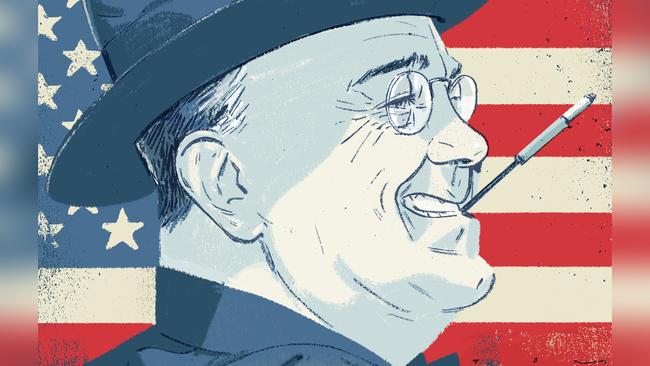
Roosevelt died at 3.35am on April 12, 1945, while staying at Warm Springs, Georgia. He was 63. The last known photos reveal a sickly and gaunt man who looked well beyond his age. He complained about a pain and slumped forward, suffering a cerebral haemorrhage. He had been working on a speech for Jefferson Day.
Harry Truman, who had been vice-president just 82 days and met Roosevelt only a few times, was summoned to the White House at 5pm. When he arrived, Eleanor Roosevelt told him the grim news. “Is there anything I can do for you?” Truman asked the first lady. “Is there anything we can do for you?” she replied. “For you are the one in trouble now.”
The president’s death, during wartime, shocked the world.
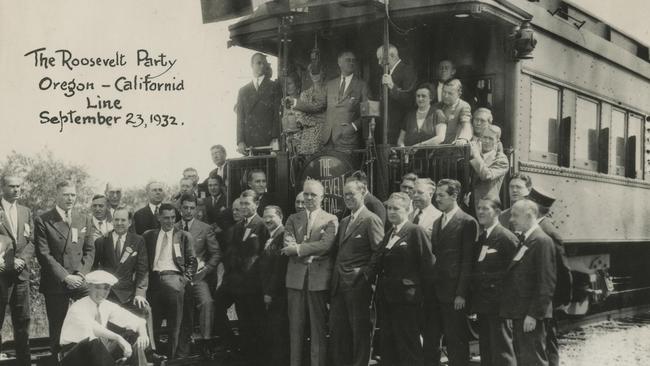
Australian prime minister John Curtin made a stirring tribute. “Australia will not forget him for his sympathy, understanding and great help in the dark days of our trial,” he said. “His ideas and ideals are a legacy to men of goodwill everywhere to carry out. Franklin Roosevelt, in my view, was one of the greatest men of all recorded time.”
Australians mourned Roosevelt’s death. Flags flew at half-mast. Churches held special services, often with standing room only. Shop windows were adorned with portraits of the president and draped in black crepe paper. An all-party condolence motion was passed by the parliament, which then adjourned. A memorial service was held on the steps of Parliament House. The deceased president was admired for pulling the US out of the Depression, helped by his New Deal policies and war production; for leading the Allied nations to victory in World War II; and for being the architect of a new postwar era that he would not live to see. His presidency holds lessons in how to confront a pandemic today.
Roosevelt projected steady and purposeful leadership. He gave people confidence that he understood the difficulties and had a plan to deal with them. He had the right temperament. Call to action
He empathised with people and asked them to make sacrifices in the national interest. He embodied resilience, having nearly died from Spanish influenza and polio, which left him paralysed from the waist down.
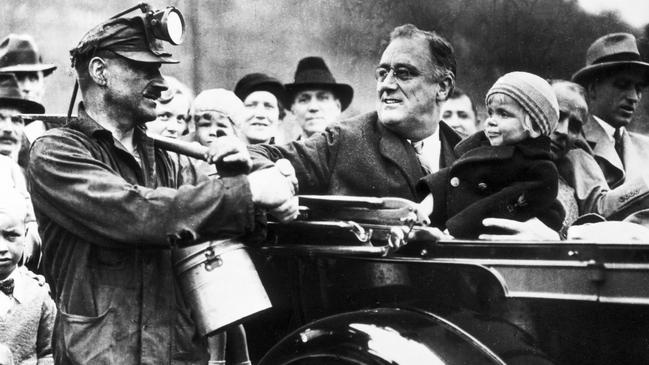
“The only thing we have to fear is fear itself,” Roosevelt said in March 1933. This was a call to action. It helped lift Americans out of the despair that all hope was lost, even though the economic recovery would be slow and not uniform across the country. He was an optimistic leader. He said economic recovery was a joint national effort. But, above all, he took responsibility for it.
Truman also made a virtue of not blaming others. He had a sign on his desk: “The buck stops here”. Truman, who faced challenges as grave as any president on taking office, saw this as a guiding tenet of his administration. “The president — whoever he is — has to decide,” he said in January 1953. “He can’t pass the buck to anybody. No one else can do the deciding for him. That’s his job.”
While Roosevelt initially kept the US out of World War II, carefully judging the public mood, he understood the danger and began planning for inevitably joining the fight. He boosted the armed forces and stepped up war production, harnessing private industry, and established the Lend Lease program. The US became “the arsenal of democracy”.
Leadership must be adaptable and forward-looking. Any crisis response must be led and co-ordinated, and partnerships must be forged. Roosevelt worked with industry, unions and congress.
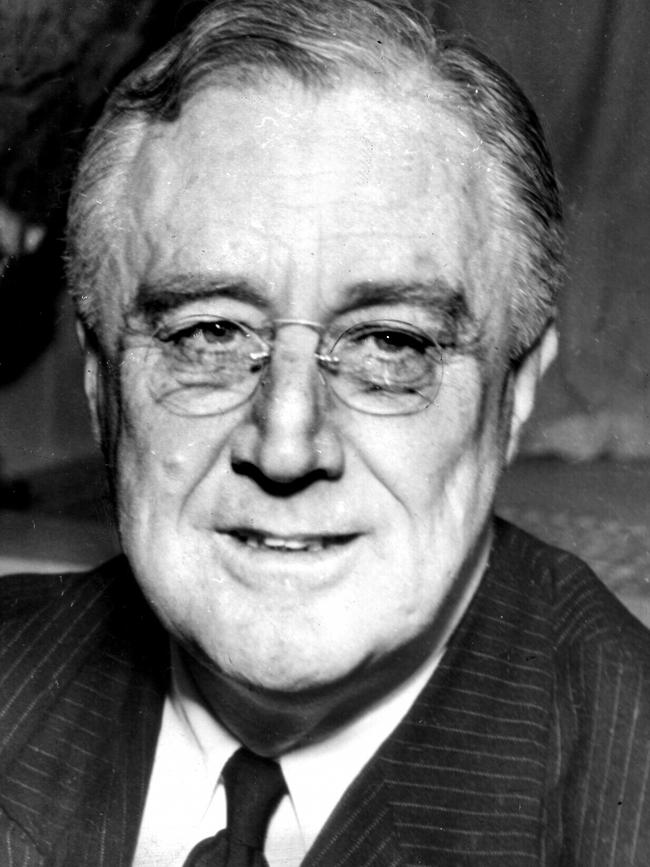
He was not afraid to innovate or experiment. He also developed partnerships with Allied leaders, especially Winston Churchill. And he understood the importance of global collaboration post-war.
Combating COVID-19 in developing nations will require an international response in the coming months if the virus is to be contained and eradicated.
Roosevelt’s fireside chats on radio gave people confidence that he understood what was required to overcome the Depression and win the war. He explained what the US was doing and why. He was a trusted source of information. He gave reassurance. And he gave Americans hope that ultimately they would succeed.
Some heads of government are managing the coronavirus pandemic and the economic destruction that has been wrought better than others. These twin calamities are unprecedented in the postwar era. Few would envy leading a nation at this time. All leaders are being tested. The burden of responsibility must be weighing heavily. It is a pity, though, that the US does not have the leadership it once did.
The disastrous national response to coronavirus is evidenced by skyrocketing rates of infection and death. The world has often looked to the US, the wealthiest and most powerful of nations, in times of peril to show the way. But now the US has become a model for how not to manage things.
Roosevelt’s legacy is a model of leadership in times of crisis that can instruct today’s political leaders. In that last speech Roosevelt had been working on but never gave, he was to say: “The only limit to our realisation of tomorrow will be our doubts of today. Let us move forward with strong and active faith.” There is wisdom in those words that can inspire us.




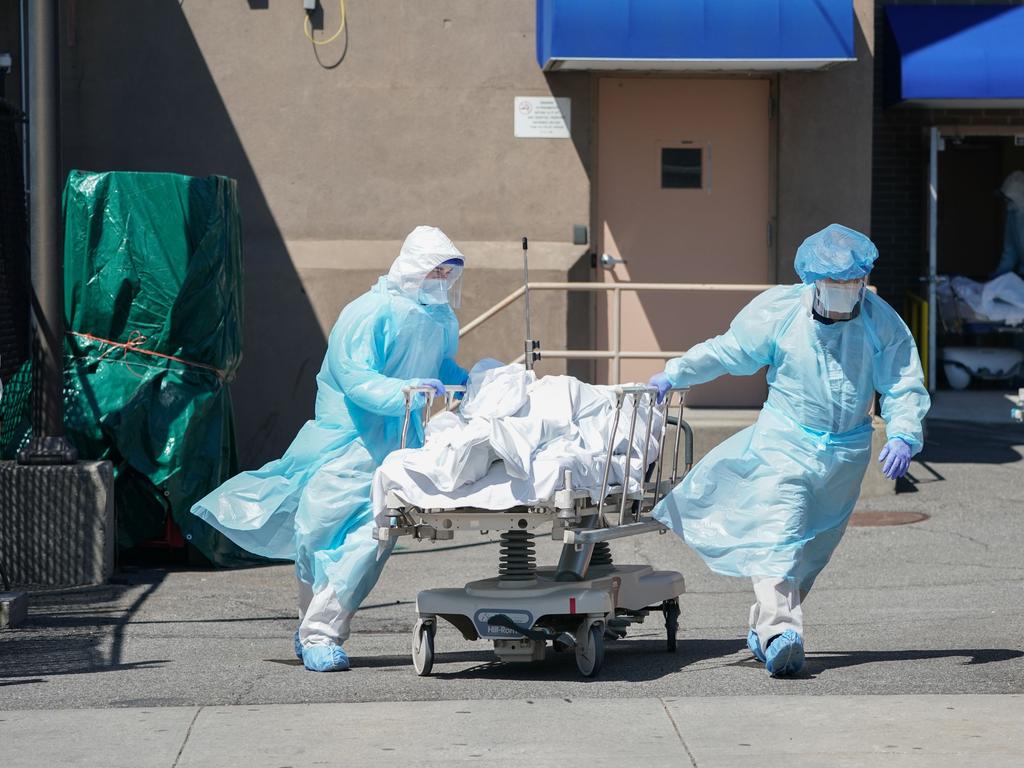
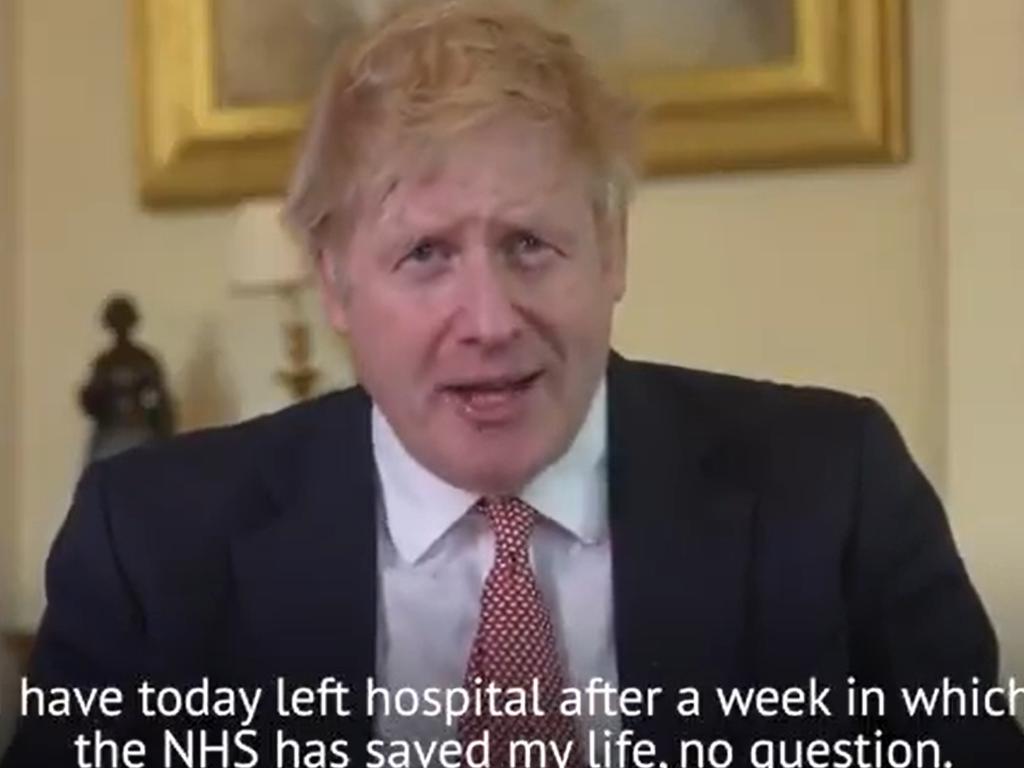


The 75th anniversary of Franklin D. Roosevelt’s death is an opportunity to consider what lessons in leadership can be learned from the greatest US president of the 20th century. Roosevelt faced twin crises — the Depression and world war — but overcame both while navigating a divided country and enduring a broken body, and was elected president four times.